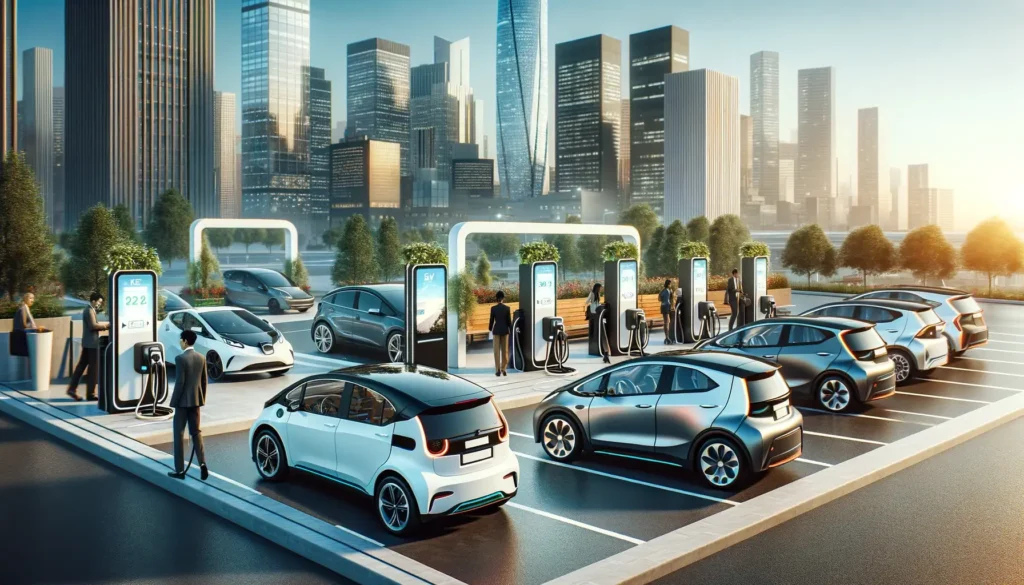Electric vehicle (EV) rentals are emerging as a pivotal factor in accelerating EV adoption globally. Transitioning from internal combustion engine (ICE) vehicles to EVs is crucial for reducing carbon emissions and improving air quality. However, consumer confidence and affordability remain significant barriers to widespread EV adoption. EV rentals offer a practical solution, serving as many consumers’ first encounter with electric transportation. This exposure helps build awareness about EVs, diminishes perceived risks, and addresses concerns related to the cost differences between ICE and EV purchases.
Renting an Electric Vehicle Before Purchasing Alleviates Concern
Research in the journal Energy suggests that EV rentals can alleviate concerns about the risk and uncertainty associated with purchasing an EV. Additionally, EV rentals highlight the sustainable aspects of electric transportation, including environmental and social benefits. This exposure can significantly enhance trust in EVs, driving future experiences and customer satisfaction. A 2021 study indicated that environmentally conscious young consumers are more inclined to rent EVs, considering it a low-risk introduction compared to the complex decision-making involved in buying an EV.
The appeal of EVs extends beyond environmental benefits. For end-users, the cost is about 2-3 cents per mile for EVs, compared to 13 cents per mile for ICE vehicles. EVs also emit significantly less global warming emissions than the average gasoline vehicle. However, EV drivers must plan for charging, which can be done at various locations, including homes, hotels, workplaces, or public charging stations. The rapid acceleration, high-tech features, and lower maintenance needs of EVs make them a win-win choice.
Despite these advantages, the widespread adoption of EVs faces challenges, primarily due to the negative environmental impact of ICE vehicles. Effective EV rentals require well-informed rental company staff to educate consumers about EVs and overcome their perceived risks and concerns. An article in the Atlantic highlights that inadequate guidance for EV renters can lead to discouraging experiences. Therefore, enhancing customer loyalty, perceived value, and rental service systems is crucial for successful EV rental operations.
Vehicle Rental Companies Challenges with EVs
As for the rental companies themselves, they face the challenge of decarbonizing their fleets. EV rentals must be profitable for long-term business viability. The car rental industry is at an early stage of electrification, with EVs constituting about 3.3% of the global rental fleet. Different rental companies target specific markets, like Hertz focusing on leisure customers, Europcar on the corporate market, and Sixt on premium users. The pricing scheme of EV rentals is a critical factor in the industry’s development trend, as it influences the willingness of customers to pay a premium for clean energy vehicles.
Bloomberg’s research shows that the rental car business is complicated by the lower residual values of EVs. However, progress in this sector could have compounding benefits for the EV industry, underscoring the importance of rental companies in the broader EV adoption landscape.
Final Thoughts
EV rentals play a crucial role in fostering wider acceptance and usage of electric vehicles. They provide an accessible platform for consumers to experience and understand EVs, helping to overcome initial hesitations and misconceptions. The rental companies, in turn, need to adapt and educate both their staff and customers to ensure a smooth transition towards sustainable transportation.


